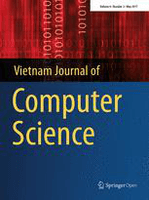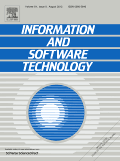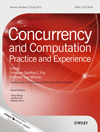
Frontiers of Computer Science
Scope & Guideline
Advancing the Boundaries of Computational Innovation
Introduction
Aims and Scopes
- Artificial Intelligence and Machine Learning:
This includes research on deep learning, reinforcement learning, and their applications across various domains, such as healthcare, finance, and natural language processing. - Data Science and Big Data Analytics:
The journal covers methodologies for processing, analyzing, and visualizing large datasets, focusing on innovative algorithms and tools for effective data management. - Cybersecurity and Privacy:
Research on secure systems, encryption techniques, and privacy-preserving methods in data sharing and cloud computing is a key focus area. - Distributed and Cloud Computing:
Studies related to the architecture, performance, and optimization of cloud services, including federated learning and edge computing, are prominently featured. - Graph Theory and Network Analysis:
The journal highlights advancements in graph algorithms, network modeling, and applications in social networks, transportation, and bioinformatics. - Software Engineering and Programming Languages:
Papers discussing software development methodologies, debugging techniques, and programming language innovations are critical to the journal's scope. - Human-Computer Interaction:
Research exploring user experience, interface design, and interactive systems is an essential part of the journal's contributions. - Quantum Computing and Advanced Algorithms:
The journal includes cutting-edge research on quantum algorithms and their applications in solving complex computational problems.
Trending and Emerging
- Federated Learning and Privacy-Preserving Techniques:
Research on federated learning frameworks that emphasize privacy and security in data sharing has surged, highlighting the importance of protecting user data in distributed systems. - Deep Learning Innovations:
There is a strong focus on novel architectures and techniques in deep learning, including applications in natural language processing, computer vision, and bioinformatics. - Dynamic and Adaptive Systems:
Studies exploring the adaptive behavior of systems in real-time, such as adaptive learning algorithms and dynamic resource allocation, are increasingly prominent. - Integration of AI with IoT and Edge Computing:
The convergence of artificial intelligence with IoT and edge computing technologies is a growing area, focusing on smart systems and real-time data processing. - Explainable AI (XAI):
As AI systems become more complex, research on explainability and interpretability of machine learning models is gaining importance, addressing ethical and trust issues. - Graph Neural Networks and Network Analysis:
The use of graph neural networks for complex data analysis and modeling relationships in various domains is emerging as a significant research focus. - Quantum Algorithms and Applications:
The exploration of quantum computing techniques and their applications in solving computationally intensive problems is gaining momentum.
Declining or Waning
- Traditional Machine Learning Techniques:
There is a noticeable decrease in publications focused solely on traditional machine learning methods, as the field shifts towards deep learning and hybrid models that integrate multiple approaches. - Basic Cryptography Without Contextual Applications:
Research that solely addresses foundational cryptographic principles without applying them to contemporary issues, such as IoT security or blockchain, has seen reduced interest. - Static Software Analysis:
Papers focusing exclusively on static analysis techniques for software have diminished, possibly due to the growing emphasis on dynamic analysis and machine learning-based approaches. - General Surveys on Established Topics:
While surveys are valuable, there is a declining trend in broad, non-specific surveys that do not provide new insights or address emerging challenges in the field. - Single-Domain Applications:
Research that applies computer science principles to isolated domains without interdisciplinary integration is becoming less common, as the field increasingly values cross-domain applications.
Similar Journals

COMPUTING AND INFORMATICS
Pioneering Insights in Computational Theory and ApplicationsCOMPUTING AND INFORMATICS is a peer-reviewed academic journal published by the Slovak Academy of Sciences Institute of Informatics, focusing on various aspects of computer science and its applications. Established in 2000, this journal has garnered attention for its emphasis on computational theory, computer networks, software development, and hardware architecture, placing it in the competitive landscape of academic publishing with currently a Q3 ranking in the fields of Computational Theory and Mathematics, and Computer Networks and Communications, as well as Q4 ranking in Software and Hardware and Architecture categories. Readers can access its findings through Open Access, promoting wider dissemination of innovative research. With an ISSN of 1335-9150 and an E-ISSN of 1335-9150, the journal serves as a vital platform for showcasing cutting-edge research in the field, aiming to bridge theoretical foundations with practical applications. This journal not only contributes to the academic community but also supports the ongoing advancements in technology and informatics, making it an important resource for researchers, professionals, and students keen on staying at the forefront of the field.

Science China-Information Sciences
Exploring the Intersection of Theory and Practical Application.Science China-Information Sciences is a prestigious academic journal published by SCIENCE PRESS, dedicated to advancing knowledge in the field of information sciences and computer science. Established in China, the journal has gained a remarkable reputation, with a 2023 category quartile ranking of Q1 in Computer Science (miscellaneous) and an impressive Scopus rank of #16 out of 232 in General Computer Science, positioning it within the 93rd percentile. The journal embraces a broad spectrum of topics, from theoretical frameworks to practical applications, providing a platform for researchers, professionals, and students to disseminate their findings and engage with the latest advancements in the field. With open access options available, Science China-Information Sciences ensures that innovative research is accessible to a global audience, fostering collaboration and interdisciplinary dialogue. The journal not only reflects the evolving landscape of information sciences but also plays a pivotal role in shaping future research directions.

International Journal of Advanced Computer Science and Applications
Empowering Innovation Through Open Access Knowledge.International Journal of Advanced Computer Science and Applications, published by SCIENCE & INFORMATION SAI ORGANIZATION LTD, stands as a significant platform in the ever-evolving field of computer science. With its ISSN 2158-107X and E-ISSN 2156-5570, the journal aims to disseminate high-quality research and innovations from diverse areas within computer science, embracing cutting-edge technologies and methodologies. As of 2023, it holds a commendable Q3 ranking in the field, placing it among a competitive cohort of journals while showcasing its commitment to scholarly excellence. The journal operates under an open access model, ensuring that its content is widely accessible to researchers, professionals, and students alike, thereby fostering a collaborative environment for knowledge-sharing and advancing the discipline. With a history of converged contributions from 2017 to 2024, the International Journal of Advanced Computer Science and Applications serves as a vital resource for those seeking to stay at the forefront of computer science research and applications.

PROGRAMMING AND COMPUTER SOFTWARE
Innovating Programming Methodologies for Tomorrow's ChallengesPROGRAMMING AND COMPUTER SOFTWARE is a distinguished journal committed to advancing the field of software development and programming methodologies. Published by PLEIADES PUBLISHING INC, this journal has been a valuable resource since its inception in 1978, reaching out to researchers, professionals, and students alike. With an emphasis on rigorous peer-reviewed articles, the journal holds a Q3 ranking in the realm of Software according to the latest 2023 Category Quartiles. Though it does not offer open access, the journal ensures that high-quality research is disseminated to its audience, providing insights into evolving programming techniques, software engineering challenges, and innovative solutions. With its convergence of years extending to 2024, PROGRAMMING AND COMPUTER SOFTWARE remains a pivotal publication, fostering a deeper understanding of the complexities in computer programming while supporting the broader software community.

Computer Science Journal of Moldova
Bridging Regional Insights with Global ImpactComputer Science Journal of Moldova, published by the Institute of Mathematics and Computer Science Academy, serves as a pivotal platform for disseminating research in the field of computer science since its inception in 1993. With a focus on a diverse range of subjects, including Artificial Intelligence, Computational Mathematics, and Software Engineering, this open access journal aims to foster innovation and collaboration among researchers, students, and industry professionals. Despite its current positioning in the lower quartiles as per the latest Scopus rankings, the journal remains committed to enhancing the visibility of regional research and addressing contemporary challenges through scholarly contributions. The journal’s open access model ensures that knowledge is freely available, promoting broader readership and impact within the international academic community. As it moves through the converged years from 2019 to 2024, the Computer Science Journal of Moldova continues to aspire toward empowering the next generation of computer scientists while enriching the global dialogue in this rapidly evolving field.

JOURNAL OF SUPERCOMPUTING
Pioneering Insights in High-Performance ComputingJOURNAL OF SUPERCOMPUTING is a premier academic journal published by SPRINGER, situated in the Netherlands, that has made significant contributions to the fields of computer science, particularly in hardware and architecture, information systems, software, and theoretical computer science. With a robust publication history spanning from 1987 to 2024, this journal has cultivated a strong reputation, evidenced by its Category Quartiles ranking in the Q2 category across multiple relevant domains in 2023. The journal's Scopus rankings further underscore its influence, boasting a 78th percentile in mathematics and theoretical computer science, revealing the high quality of research disseminated within its pages. As vital discourse unfolds in the realm of supercomputing—where innovative techniques and technologies rapidly evolve—this journal serves as a crucial platform for researchers, professionals, and students to explore cutting-edge studies and build upon the foundations of knowledge in this dynamic field.

International Journal of Networked and Distributed Computing
Navigating the Complexities of Networked SolutionsWelcome to the International Journal of Networked and Distributed Computing, published by SpringerNature, a premier outlet for cutting-edge research in the realms of computer networks and distributed computing systems. Established as an Open Access journal since 2013 and based in the Netherlands, this publication strives to disseminate high-quality, peer-reviewed studies that address the complexities of contemporary computing challenges. With an impact factor that reflects its growing influence—positioned in the Q3 category for both Computer Networks and Communications and Computer Science Applications—this journal serves as a pivotal resource for scholars and practitioners aiming to advance knowledge and innovation in this rapidly evolving field. The journal encompasses diverse topics, from network protocols to distributed algorithms, ensuring that researchers, professionals, and students can find relevant insights and methodologies to inform their work. Join us in exploring the depths of networked and distributed computing, contributing to a collaborative academic environment that shapes the future of technology.

Vietnam Journal of Computer Science
Elevating the discourse in computer science through open access insights.Vietnam Journal of Computer Science, published by World Scientific Publishing Co Pte Ltd, serves as a prominent platform for researchers and professionals in the rapidly evolving field of computer science. Launched as an Open Access journal in 2013, it aims to disseminate high-quality research across various subfields, including Artificial Intelligence, Computational Theory and Mathematics, Computer Vision, and Information Systems. With its ISSN 2196-8888 and E-ISSN 2196-8896, the journal provides valuable insights and contributes to the growing body of knowledge in computer science, particularly in Southeast Asia. Despite its relatively recent establishment, the journal has achieved significant rankings, including Q3 status in multiple categories and notable visibility in Scopus metrics, evidencing its commitment to fostering innovative research. This journal is essential for those looking to stay at the forefront of computational advancements and applications, particularly in Vietnam and beyond, facilitating an engaging dialogue among scholars and industry professionals.

INFORMATION AND SOFTWARE TECHNOLOGY
Shaping the Future of Computer Science Applications and TechnologyINFORMATION AND SOFTWARE TECHNOLOGY, published by Elsevier, is a leading journal that stands at the forefront of the fields of software engineering, information systems, and computer science applications. Since its inception in 1970 and with a focus extending to 2025, this esteemed publication has made significant contributions to the discourse on technological advancements and innovations. In 2023, it has achieved a remarkable Q1 categorization across multiple domains, including Computer Science Applications, Information Systems, and Software, reflecting its excellence and relevance in the academic community. With Scopus rankings that place it in the top percentiles in its categories (85th, 83rd, and 83rd respectively), the journal serves as an essential platform for researchers, professionals, and students eager to disseminate and engage with cutting-edge research and developments. While it does not currently offer Open Access options, the knowledge curated within its pages remains invaluable for advancing the fields of information technology and software development.

CONCURRENCY AND COMPUTATION-PRACTICE & EXPERIENCE
Empowering Research for Tomorrow's TechnologyCONCURRENCY AND COMPUTATION-PRACTICE & EXPERIENCE, published by Wiley in the United Kingdom, serves as a pivotal platform for advancing research and innovation in the fields of computational theory, computer networks, and practical applications of computer science. With an impressive impact factor and recognition in the Q2 category for disciplines such as Computational Theory and Mathematics, this journal attracts a diverse range of scholarly articles that address the current challenges and developments in these areas. It boasts a comprehensive viewership with options for Open Access, enabling wide dissemination of knowledge. Indexed by Scopus with notable rankings in multiple categories, including a remarkable position in Computational Theory and Mathematics (Rank #41/176), the journal not only elevates academic discourse but also fosters collaboration among researchers, professionals, and students alike. As it progresses toward its 2024 milestone, CONCURRENCY AND COMPUTATION-PRACTICE & EXPERIENCE remains dedicated to publishing high-quality research that prepares its readership for the evolving technological landscape.